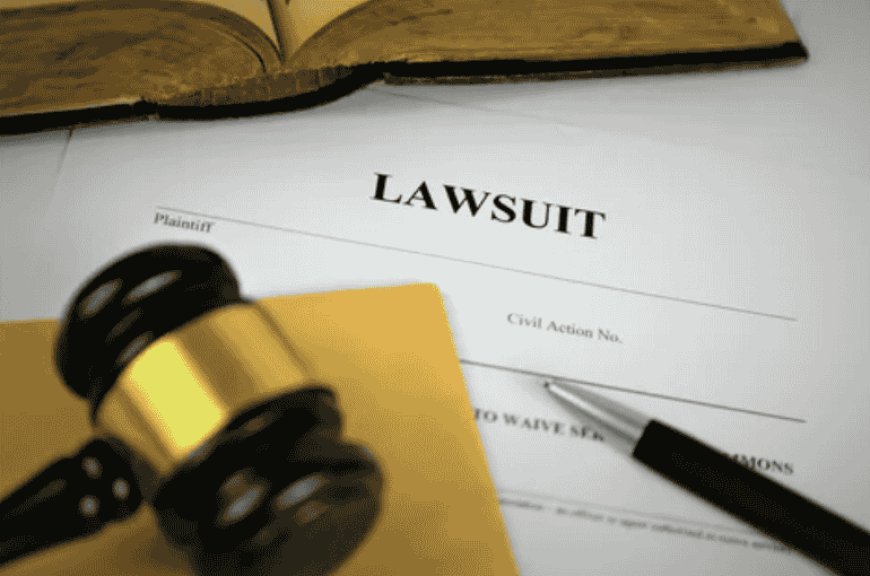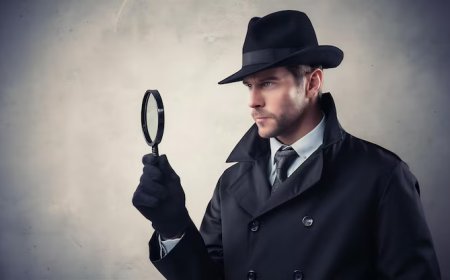What’s the Most Frivolous Lawsuit in USA History? You Won’t Believe It!

The American legal system is designed to deliver justice, but sometimes, it becomes a stage for the most bizarre and absurd lawsuits imaginable. From suing over spilled coffee to blaming fast food for personal weight gain, some cases defy logicand yet, they made it to court.
In this article, well explore some of themost ridiculous lawsuits in U.S. history, the outcomes, and why they became infamous. Buckle upsome of these are so outrageous, youll wonder how they ever got filed!
1. The McDonalds Hot Coffee Lawsuit (Liebeck v. McDonalds)
The Case:
In 1992, 79-year-old Stella Liebeck ordered coffee from a McDonalds drive-thru in Albuquerque, New Mexico. While her grandson was parked, she placed the cup between her legs to remove the lidand spilled the scalding liquid, sufferingthird-degree burnson her thighs and groin.
The Lawsuit:
Liebeck sued McDonalds, arguing that the coffee wasserved dangerously hot (180190F)enough to cause severe burns in seconds. McDonalds had receivedhundreds of prior complaintsbut refused to lower the temperature.
The Outcome:
A jury awarded Liebeck$2.86 million, though it was later reduced to$640,000. Despite public mockery (calling it a "frivolous lawsuit"), investigations proved McDonaldswillfully ignored safety risks.
Why Its Frivolous (or Not?):
At first glance, suing over spilled coffee seems absurd. But theextreme negligencemade this a legitimate casethough its often misrepresented as a cash grab.
2. The Man Who Sued Himself (In re: Brian J. Davis)
The Case:
In 1995,Brian J. Davis, an inmate in Florida, filed a lawsuitagainst himself. He claimed his illegal actions (committing crimes while intoxicated) violated his own religious beliefs.
The Lawsuit:
Davis argued that the state should pay him$5 millionbecause it failed to prevent him from breaking the law. Essentially, he blamed the system for his own mistakes.
The Outcome:
The judgedismissed the case, calling itnonsensicaland a waste of court resources.
Why Its Frivolous:
Suing yourself is the legal equivalent of punching yourself in the face and blaming someone else. It doesnt get more absurd than this.
3. The $54 Million Pants Lawsuit (Pearson v. Chung)
The Case:
In 2005,Roy Pearson, a Washington D.C. judge, took his pants to a dry cleaner owned by the Chung family. When they misplaced them, hedemanded $54 millionin compensation.
The Lawsuit:
Pearson claimed the cleanersSatisfaction Guaranteedsign was false advertising. He calculated damages by adding upyears of hypothetical violations, including:
-
$15,000 to rent a car every weekend to visit another dry cleaner
-
Emotional distress
-
Legal fees
The Outcome:
The court ruled against Pearson, calling his claimsoutrageousandunreasonable.The Chungs spent over$100,000defending themselves.
Why Its Frivolous:
A$54 milliondemand overlost pants? This case became a symbol of legal abuse.
4. The Psychic Who Sued for False Advertising (Browne v. eBay)
The Case:
In 2008, self-proclaimed psychicSylvia BrownesuedeBayfor allowing negative reviews about her. She claimed the commentshurt her businessand were false advertising.
The Lawsuit:
Browne argued that eBay should remove negative feedback because her psychic abilities were100% accuratedespite multiple failed predictions (including falsely telling a mother her missing daughter was dead).
The Outcome:
The court dismissed the case, stating eBay wasnt responsible for user opinions.
Why Its Frivolous:
Suing because people didnt believe in her psychic powers was a new level of delusion.
5. The Man Who Sued God (State of Nebraska v. God)
The Case:
In 2007, Nebraska State SenatorErnie Chambersfiled a lawsuitagainst God, seeking apermanent injunctionagainst natural disasters.
The Lawsuit:
Chambers argued that God causedwidespread death and destructionwithout warning. Since God didnt respond, Chambers claimeddefault judgmentshould apply.
The Outcome:
The case was dismissedbecause, well,you cant serve legal papers to the Almighty.
Why Its Frivolous:
Even if God had a mailing address, the case hadzero legal merit. It was a satirical protest against frivolous lawsuits.
6. The Too Salty Pretzel Lawsuit (Baron v. Wendys)
The Case:
In 2011,Phyllis Baronsued Wendys after eating asoft pretzelthat wastoo salty.She claimed it causedhigh blood pressure and emotional distress.
The Lawsuit:
Baron argued Wendys should have warned customers about the salt content. She demandedcompensation for medical bills and suffering.
The Outcome:
The case wasthrown out, with the judge stating thatsalt on pretzels is common knowledge.
Why Its Frivolous:
If salty pretzels are grounds for lawsuits, every snack company would be bankrupt.
7. The Inmate Who Sued Over Bad Prison Food (Smith v. Federal Bureau of Prisons)
The Case:
In 2016, inmateDontrayevous Smithsued the Federal Bureau of Prisons because hismicrowave burrito was too cold.
The Lawsuit:
Smith claimed the prisons failure to heat his burrito properly violated his8th Amendment rights(protecting against cruel punishment).
The Outcome:
The judge dismissed it, saying a cold burritodoesnt qualify as cruel and unusual punishment.
Why Its Frivolous:
Prison food isnt gourmet, but a cold burrito isnt a human rights violation.
Conclusion: When Lawsuits Go Too Far
While the U.S. legal system allows people to seek justice, some cases push the boundaries of common sense. Fromsuing Godtodemanding millions over lost pants, these lawsuits highlight how easily the system can be abused.
Yet, not all frivolous cases are what they seem. TheMcDonalds hot coffee lawsuit, for example, was far more serious than headlines suggested. The key takeaway?Always look beyond the sensationalism.
Whats themost ridiculous lawsuityouve heard of? Share your thoughts in the comments!
Brought to you by Raditeswhere common sense meets innovation.


































